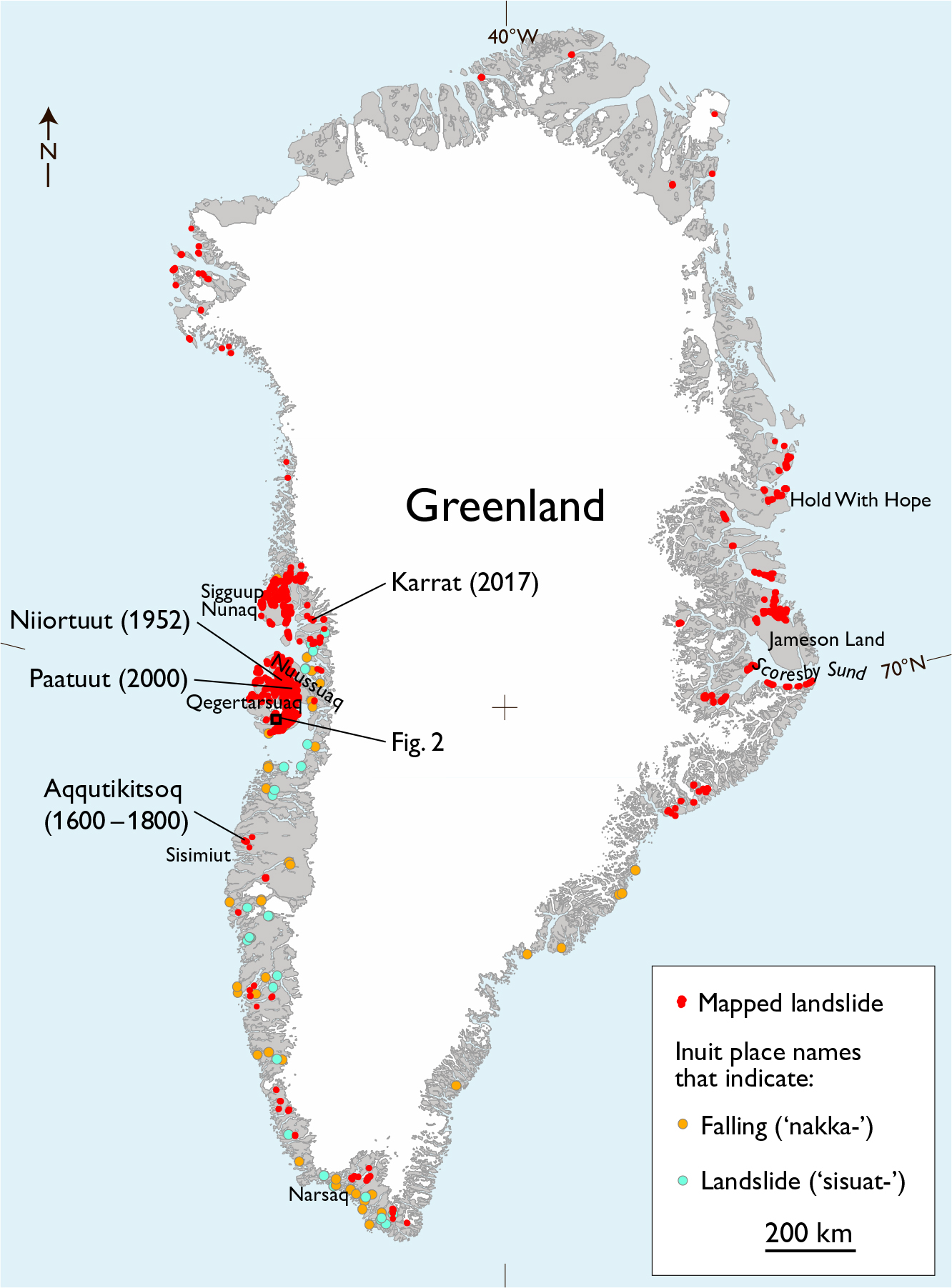Recent Landslide Tsunami Events in Greenland: A Scientific Perspective
In September 2023, a catastrophic landslide in Greenland triggered a 650-foot mega-tsunami, marking a significant event in the study of climate change and its impacts on geological stability. This incident has garnered extensive media coverage and scientific interest, revealing the intricate connections between climate change, glacial melting, and geological phenomena.
The Event: A Timeline of Destruction
The landslide occurred in a remote area of East Greenland, where a mountain peak collapsed into the Dickson Fjord. This collapse was primarily attributed to the melting of glacial ice, a direct consequence of rising global temperatures. The resulting tsunami was not only massive but also unique in its behavior; it created waves that oscillated back and forth for nine days, generating a seismic signal that puzzled scientists worldwide.
Key Details of the Tsunami
- Height: The tsunami reached an astonishing height of 200 meters (650 feet).
- Duration: The waves persisted for nine days, creating a prolonged seismic event.
- Seismic Activity: The landslide produced a bizarre seismic signal that was unlike any previously recorded, characterized by a monotonous hum rather than the typical rumble associated with earthquakes.
Scientific Insights and Implications
Climate Change Connection
The landslide is a stark reminder of the impacts of climate change. As glaciers thin and retreat, they can no longer support the weight of the mountains above them, leading to catastrophic collapses. This event is not isolated; similar occurrences have been documented in the past, such as the 2017 landslide in Karrat Fjord, which resulted in a tsunami that devastated the village of Nuugaatsiaq.

Seismic Signals and Research
The seismic signals generated by the landslide have provided researchers with valuable data. The unusual nature of the vibrations has led to new questions about how such events can be monitored and understood. Scientists are now investigating the implications of these findings for predicting future geological events in a changing climate.
Global Reactions and Studies
The event has sparked a wave of interest in the scientific community, with numerous articles and studies being published. Notable sources such as NBC News, CNN, and Ars Technica have reported on the incident, emphasizing its significance in the context of climate science and geological research.
Media Coverage and Public Awareness
The media has played a crucial role in disseminating information about the Greenland landslide and tsunami. Articles have highlighted not only the immediate effects of the event but also the broader implications for understanding climate change and its geological consequences.
Highlighted Articles
NBC News: 650-foot tsunami in Greenland made waves for days, scientists find - This article discusses the tsunami's height and duration, emphasizing the role of melting glaciers.
Ars Technica: Bizarre, nine-day seismic signal caused by epic landslide in Greenland - This piece delves into the unusual seismic activity resulting from the landslide.
CNN: A landslide triggered a mega-tsunami. Then came something inexplicable - CNN explores the mysterious vibrations that followed the tsunami.
ScienceDaily: Climate-change-triggered 2023 mega-landslide caused Earth to vibrate for nine days - This article provides a scientific overview of the event and its implications.

Conclusion: A Call to Action
The Greenland landslide and the subsequent mega-tsunami serve as a critical reminder of the urgent need to address climate change. As scientists continue to study the implications of this event, it is essential for policymakers and the public to recognize the interconnectedness of climate systems and geological stability.
The findings from this incident underscore the importance of investing in climate research, enhancing our understanding of geological risks, and implementing strategies to mitigate the impacts of climate change on vulnerable regions. As we move forward, the lessons learned from Greenland's recent geological upheaval will be invaluable in shaping our response to the ongoing climate crisis.
For further reading and updates on this topic, you can explore the following links:
This event not only highlights the immediate dangers posed by climate change but also serves as a catalyst for further research and public awareness regarding the environmental challenges we face today.




